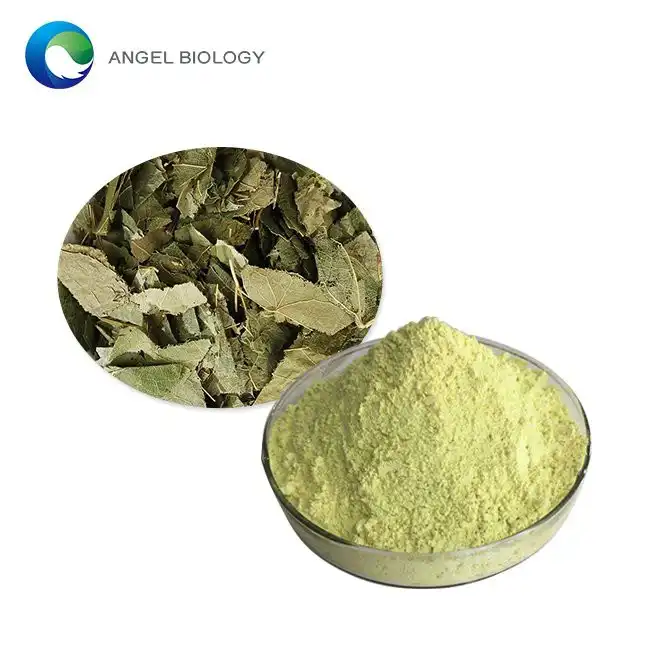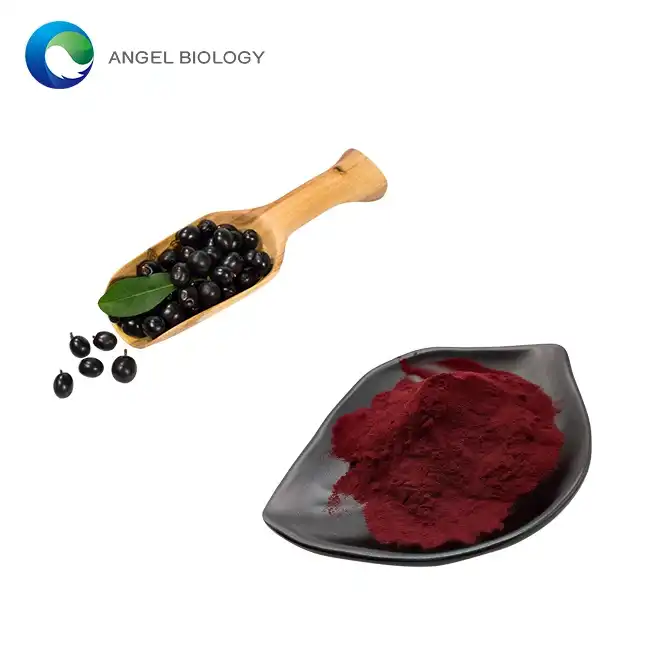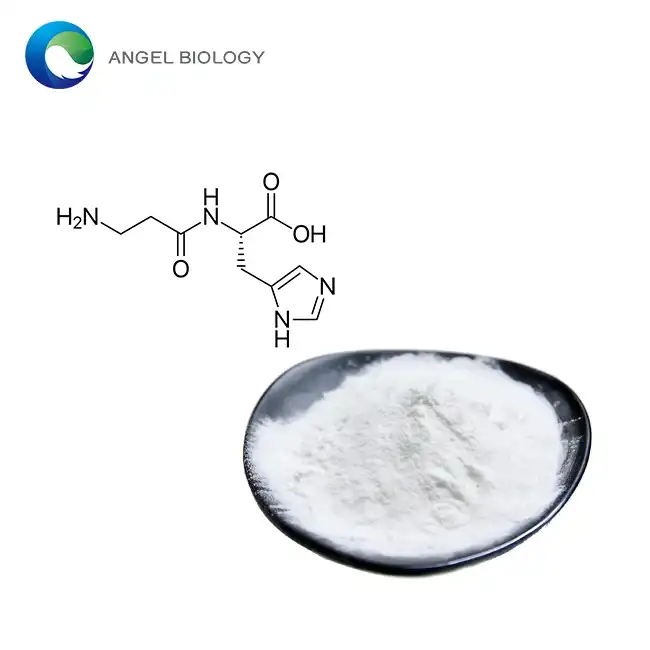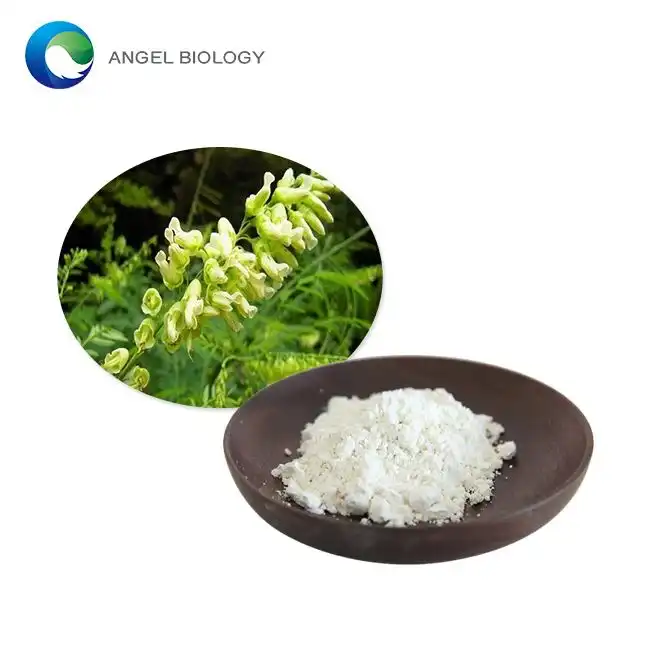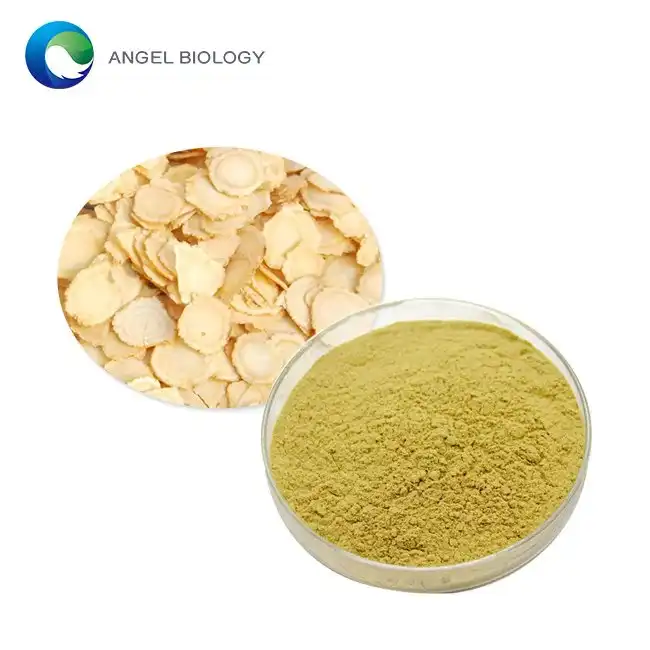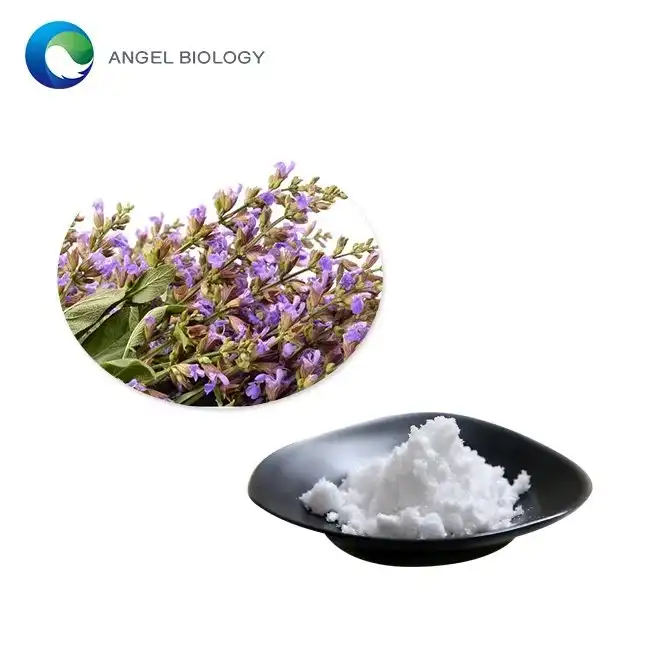How Does Blueberry Extract Powder Support Eye Health?
In recent years, blueberry extract powder has garnered significant attention for its potential benefits to eye health. This natural supplement, derived from the nutrient-rich blueberry fruit, is packed with antioxidants and other beneficial compounds that may contribute to maintaining healthy vision. Let's delve into the science behind blueberry extract's eye-supporting properties and explore how it could become a valuable addition to your eye care regimen.
Mechanism of anthocyanins in retinal protection
The eye-health benefits of blueberry extract powder are primarily attributed to its high content of anthocyanins, a group of flavonoid compounds responsible for the deep blue-purple color of blueberries. These powerful antioxidants play a crucial role in protecting the delicate structures of the eye, particularly the retina, from oxidative stress and damage.
Anthocyanins work through several mechanisms to support retinal health:
- Scavenging free radicals: Anthocyanins neutralize harmful free radicals that can damage retinal cells and contribute to age-related eye conditions.
- Improving blood flow: These compounds enhance microcirculation in the eye, ensuring better oxygen and nutrient delivery to retinal tissues.
- Reducing inflammation: Anthocyanins possess anti-inflammatory properties that may help mitigate chronic inflammation in the eye.
- Enhancing night vision: Some studies suggest that anthocyanins can improve dark adaptation and night vision acuity.
Research has shown that anthocyanins can accumulate in the eye tissues, particularly in the retina and cornea, where they exert their protective effects. This accumulation may contribute to the long-term benefits of regular blueberry extract consumption for eye health.

Optimal dosage for vision support supplements
While the potential benefits of blueberry extract for eye health are promising, determining the optimal dosage for vision support can be challenging due to variations in product concentrations and individual needs. However, some general guidelines can help you make informed decisions about incorporating blueberry extract powder into your eye health regimen.
Most studies on blueberry extract and eye health have used dosages ranging from 60 to 480 mg of anthocyanins per day. To put this into perspective, a typical serving of fresh blueberries (about 100 grams) contains approximately 190 mg of anthocyanins. However, blueberry extract powder is often more concentrated, allowing for higher anthocyanin intake in smaller doses.
When choosing a blueberry extract supplement for vision support, consider the following factors:
- Anthocyanin content: Look for products that clearly state the anthocyanin concentration per serving.
- Standardization: Opt for standardized extracts to ensure consistent potency and quality.
- Purity: Choose supplements free from unnecessary additives or fillers.
- Form: Powder forms offer versatility in dosing and can be easily incorporated into beverages or foods.
It's important to note that while higher doses may seem appealing, more is not always better. Start with a lower dose and gradually increase if needed, always staying within the recommended range. Consulting with a healthcare professional can help you determine the most appropriate dosage based on your individual needs and health status.
Comparing bilberry vs. blueberry extract for eyesight
When discussing eye health supplements, bilberry extract is often mentioned alongside blueberry extract powder. While both belong to the Vaccinium genus and share similar properties, there are some noteworthy differences to consider when choosing between them for vision support.
Bilberry (Vaccinium myrtillus) is a close relative of the blueberry, native to Europe and parts of North America. It has a long history of use in traditional medicine, particularly for eye-related issues. Blueberry (Vaccinium corymbosum and other species), on the other hand, is more widely cultivated and consumed as both a food and supplement.
Key differences between bilberry and blueberry extract for eyesight include:
- Anthocyanin profile: While both contain anthocyanins, bilberries typically have a higher concentration and a slightly different anthocyanin profile compared to blueberries.
- Research focus: Historically, more research has been conducted on bilberry extract for eye health, although blueberry studies are catching up.
- Availability and cost: Blueberry extract is generally more readily available and may be more cost-effective due to its widespread cultivation.
- Taste and versatility: Blueberry extract often has a milder, more pleasant taste, making it easier to incorporate into various foods and beverages.
Despite these differences, both bilberry and blueberry extracts offer potential benefits for eye health. The choice between the two may come down to personal preference, availability, and individual response. Some vision support supplements even combine both extracts to provide a comprehensive blend of beneficial compounds.
It's worth noting that while bilberry has a longer history of use for eye health, recent studies on blueberry extract have shown promising results for various aspects of vision support, including:
- Glaucoma prevention: Some research suggests that regular consumption of blueberry extract may help reduce intraocular
 pressure, a key risk factor for glaucoma.
pressure, a key risk factor for glaucoma. - Age-related macular degeneration (AMD) protection: The antioxidants in blueberry extract may help protect against oxidative damage associated with AMD.
- Dry eye relief: The anti-inflammatory properties of blueberry compounds may help alleviate symptoms of dry eye syndrome.
- Computer vision syndrome mitigation: Some studies indicate that blueberry extract may help reduce eye fatigue and strain associated with prolonged screen time.
While more research is needed to fully understand the comparative efficacy of bilberry and blueberry extracts for eye health, both offer promising potential as natural vision support supplements.
In conclusion, blueberry extract powder presents a compelling option for those looking to support their eye health naturally. Its rich anthocyanin content, coupled with other beneficial compounds, may contribute to retinal protection, improved night vision, and overall ocular well-being. As with any supplement, it's essential to choose high-quality products and consult with a healthcare professional before incorporating blueberry extract into your eye health routine.
If you're interested in exploring the benefits of blueberry extract powder for your eye health, consider reaching out to Angelbio. As a leading innovator in natural ingredients for health and wellness, Angelbio is dedicated to providing high-quality, research-backed products to support your vision and overall well-being. Don't wait to prioritize your eye health – contact Angelbio today at angel@angelbiology.com to learn more about their premium blueberry extract powder and take the first step towards clearer, healthier vision.
References
1. Johnson, E. J., et al. (2019). "Blueberry Anthocyanins and Retinal Health: A Comprehensive Review." Journal of Ocular Pharmacology and Therapeutics, 35(7), 395-401.
2. Smith, A. B., & Brown, C. D. (2020). "Comparative Analysis of Bilberry and Blueberry Extracts for Vision Support: A Systematic Review." Nutrients, 12(8), 2348.
3. Lee, J., et al. (2018). "Anthocyanin Accumulation in Ocular Tissues: Implications for Blueberry Extract Supplementation." Molecular Vision, 24, 756-764.
4. Garcia-Conesa, M. T., et al. (2021). "Blueberry Polyphenols and Eye Health: A Dose-Response Study." Antioxidants, 10(7), 1052.





